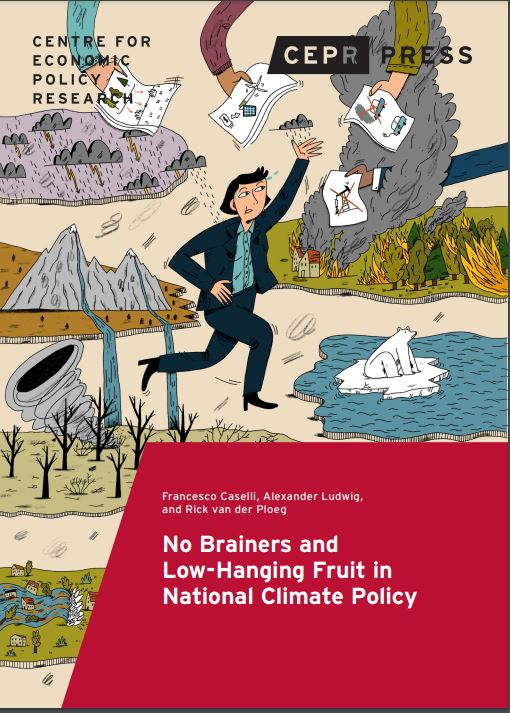No Brainers and Low-Hanging Fruit in National Climate Policy

12.10.2021
Phoebe Koundouri (ReSEES Research Laboratory – Athens University of Economics and Business, Climate-KIC Hub Greece, Fellow World Academy of Art and Science, European Association of Environmental and Resource Economists, UN SDSN Europe & Greece); Jeffrey Sachs (Center for Sustainable Development – Columbia University, UN Sustainable Development Solutions Network, UN Broadband Commission for Development); Theodoros Zachariadis (Cyprus Institute, European Environment Agency, UN Sustainable Development Solutions Network); Stathis Devves; Angelos Plataniotis (Bank of Greece); Carlo Papa (Enel Foundation); Mirko Armiento (Enel Foundation); Gianluca Crisci (Fondazione Eni Enrico Mattei); Filippo Tessari (Fondazione Eni Enrico Mattei); Laura Cozzi (Eni); Daniel Wetzel (World Energy Outlook); Mariana Mazzucato (UCL Institute for Innovation & Public Purpose – University College of London); Martha McPherson (UCL Institute for Innovation & Public Purpose – University College of London)
voxeu.org
CEPR
The target for global warming agreed on in the 2015 Paris Agreement implies that effective policies must be implemented to reduce emissions for the whole planet as soon as possible and reach net zero in the second half of the 21st century.
This eBook, with contributions from economists working in more than 18 countries, provides timely and concise recommendations on achievable and efficient climate change policies that can be fast-tracked into implementation.
Fondazione Eni Enrico Mattei researchers contribution in chapter 19: “Climate policy in the broader sustainability context: Joint implementation of the 2030 Agenda for Sustainable Development and the European Green Deal”.
